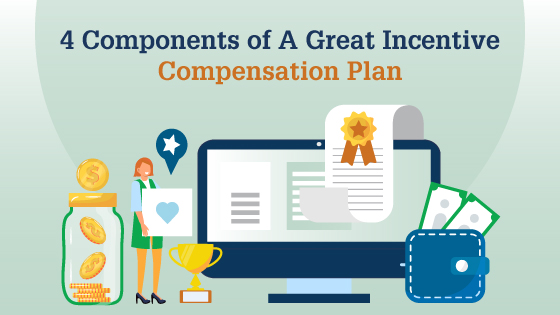By offering employees at your funeral home an incentive compensation plan––that is, tying their wages to sales, client satisfaction, and company health––you provide an extra dose of motivation for exceptional workplace performance and increase the chances of maintaining quality talent.
But an incentive compensation plan is not as simple as writing bonus checks for every employee; rather, you’ll want to carefully plan a structure of incentivized pay, communicating it clearly to team members. Here’s what to focus on.
1. Understandable
At its core, incentive compensation is a motivational tool, one that encourages team members to perform at their best. As such, you’ll want to make sure that your incentive compensation plan is easily understood by the team at your funeral home. A plan that is complex may not motivate people because they won’t see the link between their actions and the results. It’s important that all individual employee targets be aligned with the goals of the company.
A large part of a successful incentive plan is creating clear and simple benchmarks and targets. For example, focus your funeral directors and arrangers on specific customer satisfaction metrics and sales targets. Once achieved the entire team (or individual employees) receive a percentage of sales. If the company thresholds are met, and individuals perform above these targeted levels, then bonuses are paid.
The key is to keep your incentive structure simple and free of loopholes. When employees can clearly see their objective, then they’re more likely to pursue and achieve it.
2. Fair
There are many ways to create incentive plans that are fair for both parties. Here are a few ideas to consider:
- Design company qualifiers that are achievable (like quarterly call volume and average sale targets that are at or just above budget).
- Omit pre-need contracts from arrangers’ average sale calculations, and design different targets for locations with different General Price Lists.
Many plans start “fresh” every quarter, so poor or high performances don’t affect an arrangers’ bonus in future quarters. Employees can also qualify for part of the bonus, rather than an all-or-nothing approach.
3. Easily Measurable
While it’s relatively easy to measure the outcomes from sales-related positions–– such as total call volume, revenue, or average sale––other positions might be more difficult to quantify. Remember, it’s important to establish metrics for success for all roles.
Client satisfaction, numbers of surveys obtained, and the overall success of the company can all play into your incentive compensation plan. Whatever key performance indicators (KPI) you choose to incorporate, you’ll want to make sure that the factors contributing to incentive pay are easily measurable and trackable.
4. Consistent
In addition to clearly articulating the criteria of your incentive packages, you should create a consistent framework for paying out your team members.
In terms of frequency, you’ll need to create regular payouts, often on either a monthly or quarterly basis. Whichever you choose, keep it consistent. Remember, incentives work better when employees can clearly see the link between their performance and the results.
On a similar note, your incentive compensation plan should rarely change in terms of reward structure. Consider revising your plan only annually and stay consistent throughout the year. Incentive compensation can already be unpredictable, fluctuating with differing sales and revenue totals. With this in mind, you should think carefully before changing the incentive policy, which might make the program too volatile for employees to see a true benefit.
It’s also a good practice to communicate the purpose of the incentive plan to all participants: to reward performance that is above and beyond an employee’s standard roles and responsibilities.
How to Build an Effective Incentive Compensation Plan
While the goal of incentive compensation is simple––spurring your team to perform at optimal levels––devising and implementing these plans is a tricky process, one that must account for the goals of your funeral home, the behavioral traits of your team, and the needs of your client-families.
To ensure that your incentive compensation plan gives you the best return on your investment, you might consider calling in the experts.
At Johnson Consulting Group, the nation’s leading funeral home consulting firm, our team has decades of experience owning, managing, and growing death care businesses. By partnering with your team, our consultants can develop an incentive compensation plan that is simple, actionable, and measurable, ultimately bringing your employees and business to greater heights.
MOTIVATE YOUR TEAM